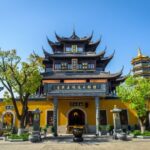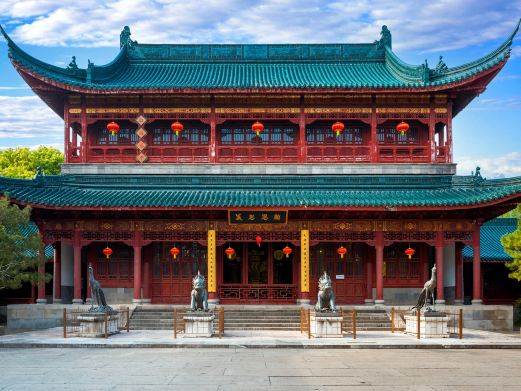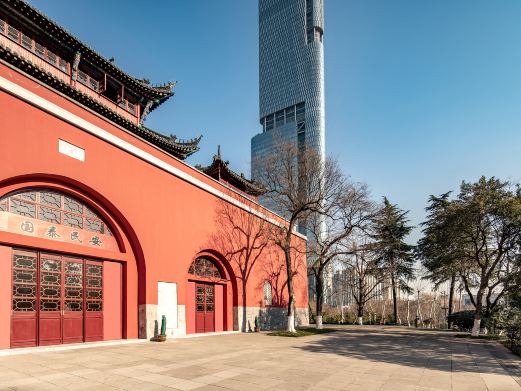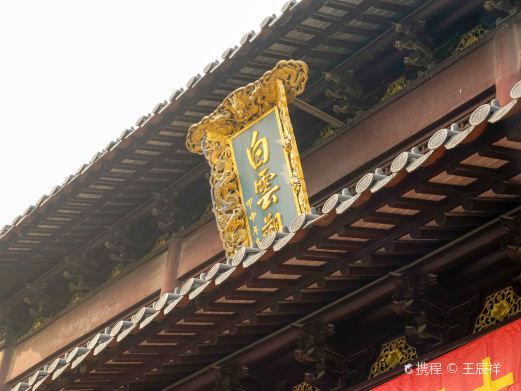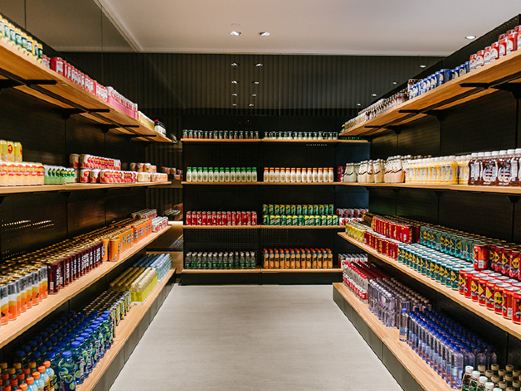Yi Garden, originally constructed in the 20th year of the Jiajing era of the Ming Dynasty (A.D. 1541), was acquired by Wen Zhenmeng, the grandson of Wen Zhengming, in the 48th year of the Wanli era (A.D. 1620), and was then known as the Medicinal Garden. In the 16th year of the Shunzhi era of the Qing Dynasty (A.D. 1659), the garden came into the possession of Jiang Cai from Laiyang, Shandong, and was renamed Yi Garden.
As a small garden with distinctive Ming Dynasty artistic characteristics, it stands out among the gardens of Suzhou. The layout of the entire garden is concise and bright, with a natural and simple style, free from any sense of being overly elaborate or artificial. Its artistic value surpasses that of late Qing Dynasty garden works. From the arrangement of mountains and waters, pavilions, and even the detailed handling of each stone and tree, the garden exudes an ancient and elegant style. Centered around a pond, the garden is divided into residential and garden areas. The north of the pond is dominated by buildings such as Boya Hall and Yangguang Pavilion, while the south is dominated by mountain scenery, with a cliff and stone path made of lake stones facing the pond, which is both varied and natural. To the east of the pond is the Ruyu Pavilion, a legacy structure from the Ming Dynasty. Looking south from the waterside pavilion, the integration of mountains and waters, and the lush greenery, provide a sense of wilderness and natural charm, making it the main focal point of the garden. The combination of pond water, stone paths, and cliffs, which draws from nature and strives to surpass it, is a common method used by garden designers in the Suzhou area during the late Ming and early Qing Dynasties. Opening hours: 03/01-10/31 from 07:30 to 17:30; 11/01-02/28 from 07:30 to 17:00.Concessions: Children: Under 6 years old (inclusive) or under 1.4 meters in height (inclusive), with valid identification, free. Minors: Between 6 years old (exclusive) and 18 years old (inclusive), with valid identification, half price. Elderly: Over 70 years old (inclusive), with valid identification, free. Between 60 years old (inclusive) and 70 years old (exclusive), with valid identification, half price. Students: Full-time undergraduate students and below, half price. Disabled persons: Disabled individuals and one accompanying person for severely disabled individuals, with valid identification, free. Military personnel: Active military personnel and retired military cadres of the People’s Republic of China, with valid identification, free. Concessions for preferential treatment: With the ‘People’s Republic of China Veterans’ Certificate’ and ‘People’s Republic of China Martyrs, Fallen Soldiers, and Deceased Soldiers’ Dependents’ Certificate’, preferential treatment recipients (excluding garden-within-garden, in-garden charges, and night tours), free. Suzhou medical staff: Free to visit the scenic area within 7 days starting from May 12th, International Nurses’ Day, and August 19th, Chinese Doctors’ Day (May 12th to 18th, August 19th to 25th). When visiting the scenic area, Suzhou medical staff should present their ‘Personal ID’ + ‘Suzhou Medical Staff Free Garden Card (electronic card)’, which allows direct entry without reservation and waives the first ticket fee.
Please note that the above information is for reference only. The specific content is subject to the announcement of the scenic spot.



